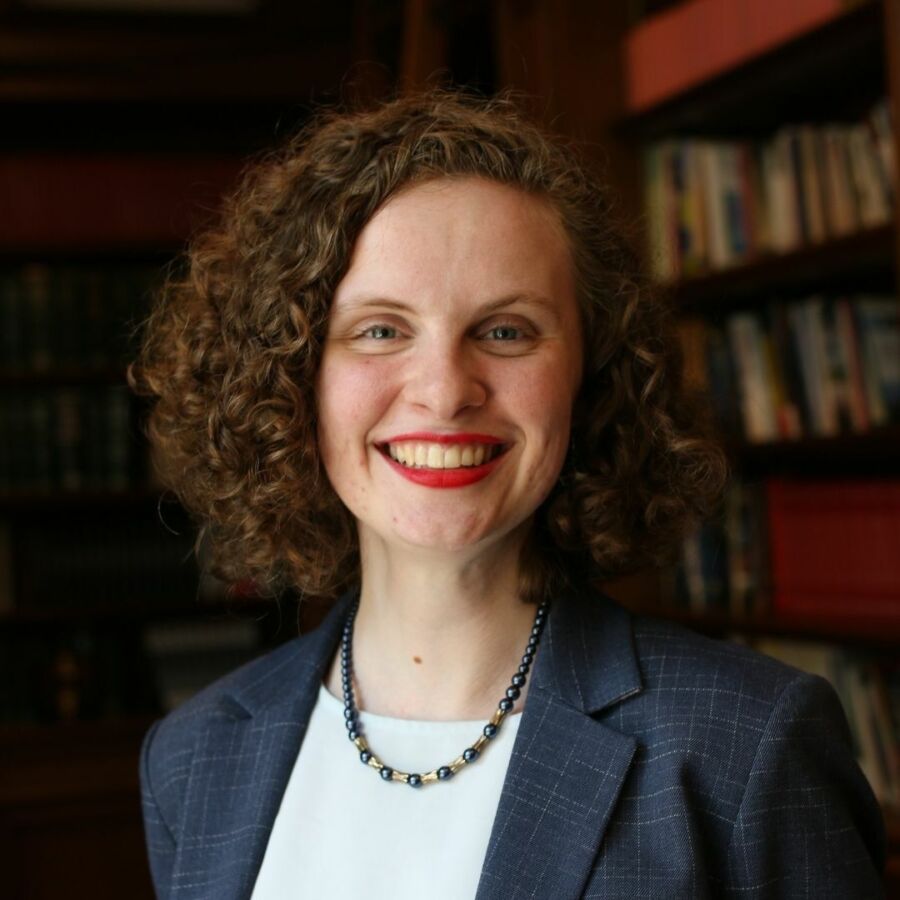President Donald Trump’s One, Big, Beautiful Bill (OBBB) is packed full of policy changes—changes we’ll be feeling for years to come. To help break down what President Trump’s OBBB means for health care in Texas and the rest of America, I sat down with three health care experts and asked them what they thought the most important changes were.
 Caroline Welton, Campaign Director, Center for Health and Families
Caroline Welton, Campaign Director, Center for Health and Families
Caroline is one of the driving forces behind TPPF’s Center for Health and Families (CHF). It’s her job to coordinate research and share all the policies that we’re working on with the Legislature—in short, make sure all the trains run on time. Here’s what she had to say:
Caroline: Well, one of the things we’re excited about here at CHF is the work requirement for Medicaid, which promotes the spirit of industry and personal responsibility that America was built on. Obviously, there are exemptions for people who can’t work, but if you can work, you should, which not only keeps their end of the bargain before accepting taxpayer-funded support, but also develops a habit of resilience instead of dependance.
Austin: Keeping it on Medicaid, what were some other changes you were following?
Caroline: The OBBB also tightened eligibility requirements, which ensures that illegal immigrants and people who can get insurance but choose not to aren’t in the program anymore. Medicaid expansion has not actually improved medical care, and the work requirement will provide more private health care options. This helps save resources for the people who need it most, and it keeps Medicaid as the safety net it was intended to be. In the same spirit, the OBBB also prohibits Medicaid payments from going to transgender surgeries or abortion clinics, which both comports with Texas laws and saves resources for the program.
Austin: That all makes sense, and I love seeing federal law follow Texas laws. Are there any other big changes you’re tracking?
Caroline: Yes, the last big change is that the OBBB is requiring pass-through pricing from Pharmacy Benefit Mangers, or PBMs, serving Medicaid. The PBM issue is a whole lot to get into, but let’s keep it simple and just say that they’re middlemen in the pharmaceutical space who can really drive up the prices of medication. By requiring pass-through pricing, the OBBB helps bring medication costs down for people on Medicaid, which, again, helps save the program money and keeps it working better for people using it.
 Nicholas Armstrong, Policy Analyst, Health Care Policy
Nicholas Armstrong, Policy Analyst, Health Care Policy
Nicholas is our details guy for health care policy—he knows the ins and outs of our health care system here in Texas, which accounts for almost a full third of state spending. I chatted with him to get a good picture of what some of the fiscal measures in the OBBB mean for Texas:
Nicholas: One of OBBB’s main points was to cut down on fraud, waste, and abuse in state Medicaid programs. In just the past decade, there has been approximately $1.1 trillion in improper Medicaid payments made to ineligible recipients or for uncovered services. Cracking down on fraud and waste revolves around gradually reducing the federal share of supplemental payments to the states. This ensures that supplemental payments in Medicaid go to providers that actually service Medicaid patients, and not questionable state funding schemas that deprive vulnerable communities.
Austin: That does seem like a big deal! What else are you tracking?
Nicholas: One of the other big changes is the new restrictions on provider taxes. Provider taxes are paid by health care providers that erroneously draw down more federal dollars. The state uses the money raised by provider taxes to claim additional federal reimbursement, and then return it to providers, mostly hospitals. In other words, states have created a system that shifts the cost of their Medicaid programs to the federal government. This has caused an overreliance on provider taxes to fund Medicaid, and the OBBB restricts existing rates and prevents new provider taxes being enacted. This will compel many states, especially Texas, to take a hard look at how they will fund their Medicaid programs with fewer federal dollars coming in.
 Dr. Clifford Porter, M.D., Ph.D., Senior Fellow, Health Care Policy
Dr. Clifford Porter, M.D., Ph.D., Senior Fellow, Health Care Policy
Dr. Porter is one of those people who’s done it all: He’s a medical doctor who runs a successful Direct Primary Care (DPC) clinic right here in Austin, but he’s also a well-read student of philosophy and policy expert on health care. It’s fair to say that he hasn’t just studied our health care system, but lived in it and with it, and so I was excited to get his perspective on some of the OBBB changes:
Cliff: Well, one of the big things in the OBBB is its expansion of Health Savings Accounts, or HSAs, and what they can be used on. As you know, HSAs are really flexible accounts that let people use them, mostly tax-free or tax-reduced, on a variety of health needs. But there were some glaring omissions from the list of allowable expenses. The OBBB added Direct Primary Care to the list of allowable expenses, and more people are eligible for HSAs. HSA funds are used like cash, and paid medical expenses count towards deductibles in Texas. This gives people on HSA plans a lot more flexibility on where they go, and it helps them save money.
Austin: That sounds great! Now, I know you run a DPC clinic—can you explain how that flexibility works for the HSA, and why people might choose to use it?
Cliff: DPC isn’t necessarily something new—it’s a return to how medicine used to be practiced, with a doctor you get to know, longer appointments where you could ask all the questions you have, and far, far fewer unnecessary referrals or ER visits. Even better, DPC clinics normally run on a monthly or yearly fee, rather than a per-visit fee, so it’s easier to budget for. By allowing HSAs to be used for DPC, the OBBB gives people who normally would have to pay out of pocket for monthly membership tax-exempt access to what is, in my humble opinion, the best way to receive your primary and even urgent care, which accounts for almost 90% of medical visits.
Austin: It’s easy to see why you’re so passionate about DPC. Any final thoughts on the OBBB?
Cliff: The OBBB expands the “triple tax benefits” of HSAs—HSAs are tax deductible, any interest or growth of the money in HSAs is tax exempt, and medical costs are tax exempt as well. Overall, it helps keep down costs for the people using them and making health care more affordable and accessible is a huge priority for us!
Parting Thoughts
Americans are going to be unpacking President Trump’s One Big, Beautiful Bill for weeks to come, and we’ll be feeling its impact for decades. But this quick set of conversations helps lay out some of the most important changes for health care once all the provisions in the OBBB come into effect.











